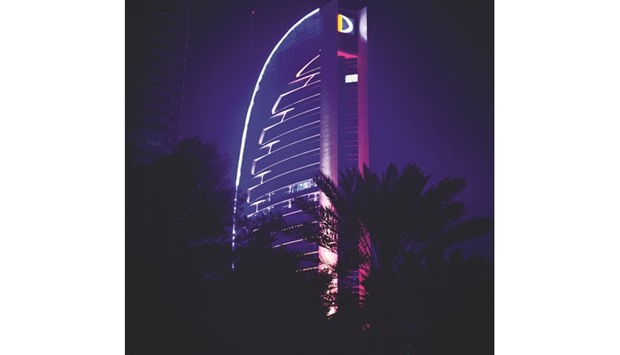Capital Intelligence (CI), the international credit rating agency, has affirmed Doha Bank’s financial strength rating (FSR) at ‘A’.
Based on the still strong Qatari government balance sheet and the Qatar Investment Authority’s significant shareholding in the bank, the support rating is affirmed at ‘2’. The bank’s long and short-term foreign currency ratings (FCR) are affirmed at ‘A’ and ‘A2’, respectively, reflecting the lender’s intrinsic financial condition, and ongoing government support for all Qatari banks.
However, the outlook on the FSR and FCRs are lowered to
‘negative’.
The FSR is supported by the bank’s specialist franchise in Qatar, the business potential of its new operation in India, as well as by its still sound profitability despite the fall in revenues in 2015, CI said.
Generally sound loan asset quality metrics and a strong capital adequacy ratio also support the FSR, although the CET-1 (common equity tier-1) ratio is coming under “some pressure”, it said, adding the FSR however remains “constrained” by what is still tight liquidity, still low internal capital generation, and the overall uncertainties associated with the potential medium-term impact on the Qatari banking system of a prolonged period of low hydrocarbon prices.
“The bank’s new strategy includes a more cautious risk appetite and caps on higher risk sectors such as contract financing and real estate; this should over time improve the risk profile of new business,” the rating agency said.
However, risks associated with existing contractor financing and real estate loans and the existing levels of overall concentration in the lending book could lead to non-performing loan accretion rates remaining elevated for some time to come, it cautioned. Overlaying all of this in addition is a tightening trend in liquidity conditions across the entire Gulf Cooperation Council (GCC). In such an environment, weaknesses in liquidity profiles need to be repaired as soon as possible, CI suggested.
Doha Bank’s international network has been leveraged to support both local and international business, it said.
“Non-interest revenue is expected to recover this year with the new branches in India providing additional momentum. However, given its tight liquidity and the change of emphasis in its business model, it remains unclear how much of this credit growth Doha Bank can afford to capture,” it said.
With loan growth being constrained, raising overall revenues will depend increasingly on non-interest income. However, while fee and commission income should again grow after the minor setback of 2015, securities markets in the GCC remain depressed and securities income is probably unlikely to quickly return to the sort of levels seen up to 2014.
“Income growth may therefore be subdued, which will put additional pressure on management to carefully manage the cost base,” CI said.

Doha Bank’s international network has been leveraged to support both local and international business, according to Capital Intelligence.
